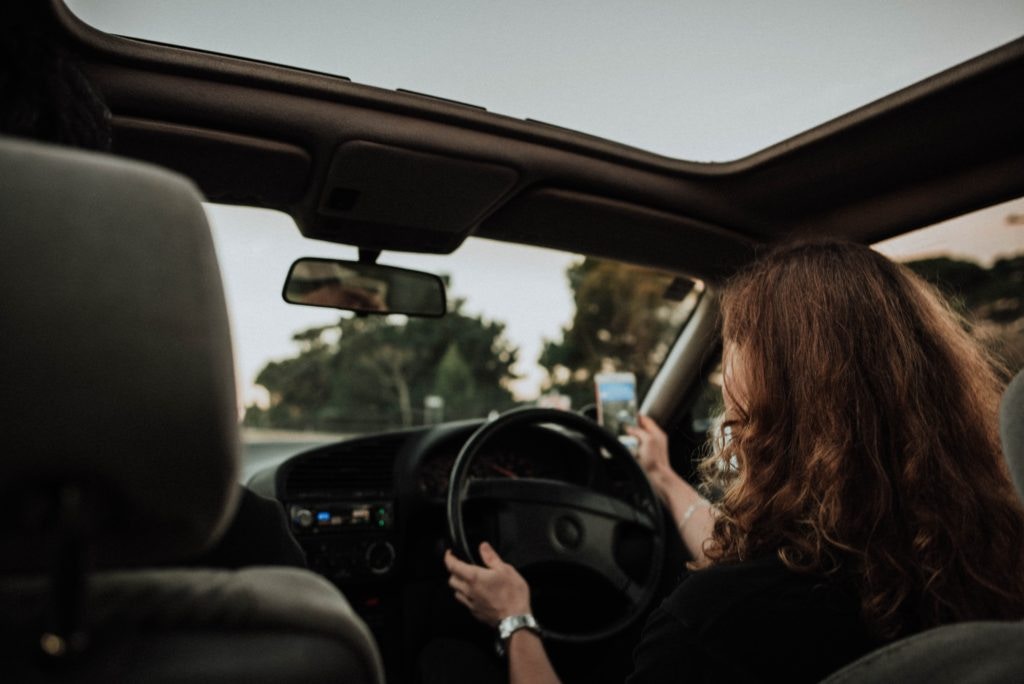How to safely sell your car

There are a few ways to sell your car if you’ve decided it’s time to part ways. It’s important to consider safety for all of them. There are a few things you can do to improve your chases of finding a buyer who is trustworthy or just not a timewaster.
How to sell a car online safely
Selling your car online is a popular way of connecting with potential buyers. There are plenty virtual hubs you can use to advertise your car, including:
- Social media
- Listing sites
- Forums
Remember, the genuine buyers out there need to know you’re legit as well as vice versa. So, how you advertise your car is also key. A well thought-out post on social media, complete with pictures and a link to your profile, may be more successful than an anonymous one-line post on a message board.
Here’s how to sell your car safely online:
Sell the Motorway way
We’ll take this opportunity to remind you that Motorway is a great way to sell online. We work with over 5,000 dealers nationwide who are highly experienced and professional. So, you get a fantastic experience without needing to engage in any worrisome dealings with internet strangers. There’s not need to negotiate with buyers, and no tense conversations. All you have to do is make a quick and easy car profile and then wait for your best offer to come in. You can start selling with Motorway here.
We collect your car from home for free, and our helpful advisors are just a phone call away if needed. If, however, you decide to sell without Motorway, then take some extra measures to keep yourself safe.

Only post on reputable sites
No site will take responsibility for two users consenting to an offline deal. Still, you’re likely to find more trustworthy characters on the local social media group than on a website no one has heard of. While catfishing is always an issue online, there is some small sense of security in only dealing with people who have visible local connections to others in your community.
Likewise, forums often let you see how long people have been members and sometimes also their posts, so you can get a sense of their character. Chances are, if someone is dedicating multiple hours a day to enthusing about cars with others, they’re not going to be a bad buyer for your own vehicle.

Watch out for scammers
Scammers can be very clever, so the best way to guard against them is simply to protect yourself. Insist on all their key contact details and don’t leave them alone when they come to view or collect your car. Do not give out your bank details until you are assured your seller is genuine. Never let anyone pressure you into a quick sale, even if they offer a tempting price.
Insist on a call
Talking through messages makes it easy to hide. Insist on a real-time call, or a video call, and make sure that the person you are talking to is the same person who shows up to collect your vehicle. Talk over every detail of your deal, what you’ll include in sale, how you want to be paid, and when you want the vehicle collected. A genuine buyer is unlikely to have an issue with any of this, and if you do find yourself receiving significant pushback, it could be a red flag.
How to safely sell a car privately
Once the online negotiations have moved offline, there are still some key tips to keep in mind when selling your car privately, most importantly…
Never leave the buyer alone with your car
No matter what they tell you, no matter what diversion they may attempt to create, never leave the buyer alone when viewing the car. They may take this as an opportunity to add a scratch or mark in order to re-negotiate the price. Never, ever allow them to test drive the car alone — you may never see it again! It’s always a good idea to let someone else know the buyer’s details and the time you plan to join them for a test drive — you can never be too safe!
Do not drive to the buyer
Always meet somewhere you are comfortable with, whether that’s your home, a local car park, or somewhere close by. Do not let the buyer pick an unknown location, and don’t go anywhere deserted.

Do walk away if you need to
It is your right to walk away from negotiations. If you ever feel uneasy, unsafe, or just don’t think the deal is going to work out the way you hoped, don’t push it. If things have started to turn sour between you and your buyer then getting paid, or getting paid the right amount, may quickly become a nightmare.
Do make sure you’re both agreed
If your seller turns up and suddenly wants to rework the deal, things can quickly get tense. Before the collection, make sure you both know what you’re getting into, even the silly little details. Will you be removing the windscreen stickers before the sale? Will the buyer expect your car to have been freshly washed (always recommended for those best car profile photos!). Price may need to be flexible, but again, ensure you’re both in the same ball park on that. Agree to a conditional price, so long as your car meets their expectation. Otherwise, you could end up wasting the day hosting a test drive only to disagree on a sales price. Before the buyer rocks up to collect, make sure every detail has been settled. Then you can get onto settling payment.

Use secure payment methods
There are a few ways you can request payment from car buyers, but it is always important to stay safe. When selling your car privately, you don’t have the peace of mind that comes with a secure online transaction, but you can still opt for safe methods. If you insist on being paid in cash, agree to meet at a bank, where you can witness the money being withdrawn and counted. If you choose cheque, be extra sure your buyer is genuine and get all their details. Should that cheque bounce, you want to know you can chase it. The best way is to use secure bank transfer. In many cases, the funds should arrive in your account quickly so you could potentially request the transfer and have the money arrive in your bank account during your buyer’s visit.
Make sure to do your bit
Notify the DVLA when you transfer ownership. Ensure you have also handed over key documents like the service history, V5C, MOT certificates, and any spare car keys. Make sure you’ve done everything by the book, so the buyer can’t accuse you of selling them short later on.

Is it time to sell your car?
Want to learn more about owning, maintaining, and selling your car? Check out more of our guides here, covering everything from finding buyers, to negotiating a good price, and completing payment safely.
- Car depreciation — the ultimate guide
- How much is your car worth?
- How to get the best price for my car
- Car trade in value – get your highest offer
- How much does mileage affect car value?
- Is my car worth less after an accident?
- What is diminished value?
- Selling a car without a V5C
- How to tax your car
The information provided on this page is for general informational purposes only and should not be considered as professional advice.